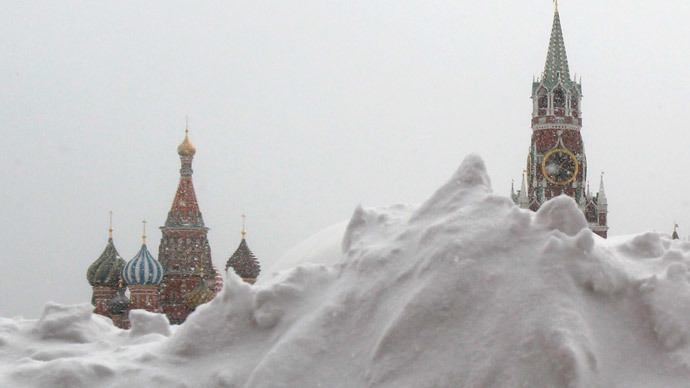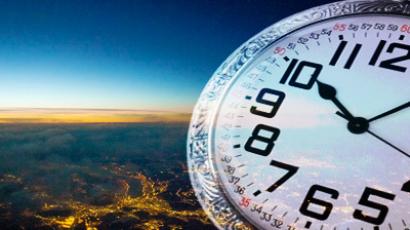Permanent winter: Russia turns back clocks for last time

On this last October weekend, Russia turned its clocks one hour back - a practice that had been abolished for three years. But the daylight savings time (DST) policy remains abandoned, with the government's decision to stick to winter time permanently.
The decision not to change clocks and keep summer time all year round was applied in Russia by its then president Dmitry Medvedev in 2011. Russia's clocks were then put one hour forward, not to be changed again later, making Moscow GMT+4.
Russia turns its clock to winter time, permanently http://t.co/QIX3vh59n9pic.twitter.com/Pem7r6RAfd
— RT (@RT_com) October 26, 2014
The three-year experiment of living on perpetual summer time has proven to be unpopular among many Russians for various reasons.
Some complained dark morning hours affected their body clocks badly, with people having to wake up for work or children go to school in complete darkness.
"Dark mornings have a worse effect on people’s state of health than dark evenings," the head of sleep medicine at the Federal Medical and Biological Agency, Aleksandr Kalinkin, told TASS news agency.

Being more hours ahead of GMT also made sports fans frustrated, as it meant they had to stay up longer hours at night to watch broadcasts from Europe.
The abolished time changing has also caused confusion among travelers, who had to memorize various time differences in the summer and the winter. Many gadget and other digital clocks needed to be adjusted manually, as software did not always recognize the abolition of DST in Russia.
While the two latter problems might remain, with permanent winter - instead of summer - time in Russia, the country will now have more hours of sunlight in the mornings in winter, and "Europe will now be closer," as representatives of the Russian Academy of Sciences put it at a press conference in Moscow. The difference between the capital and GMT will now be plus three hours.
The revision will also bring back Russia's 11 time zones, from Kamchatka in the Pacific to Kaliningrad in Europe, with the number having been reduced to nine after the 2011 changes.
The decision of switching back to winter time was submitted to the Russian parliament at the beginning of the year, with the law approved and then signed by president Vladimir Putin in July. No seasonal time change is expected in the country any time soon.
The time changing dispute has been a long standing issue, both in Russia and internationally.
In 1981 DST was introduced in the Soviet Union, which was previously abolished by the bolsheviks in 1930. Variations have also occurred several times in Europe and America throughout the 20th century.

Now, clocks are set one hour back or ahead twice a year in over a hundred of the world's countries. DST practice is popular in Europe and America, while most Asian and African countries do not change their clocks.
Half adjustments of 30 minutes, or two-hour switches have also been used in several countries during the past century. Canada's province of Newfoundland and Labrador has had a two-hour change, while Australia's Lord Howe Island currently applies DST to its clocks by being moved 30 minutes.
First thought up back in the 18th century, the daylight saving practice has both opponents and supporters, with the most popular pros being for its energy efficiency, as it reduces the need for artificial lighting. Some researchers also suggest it provides financial boost in tourism, stimulating travelers to pursue outdoor activities.














